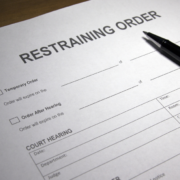Jetting off to Tokyo or Paris has always been on your bucket list, and now that your ex is in the rearview mirror, you make plans to do just that. Not so fast, though. Traveling abroad with a child post-divorce isn’t something you can do on a whim. You’ll probably need to ask your ex for permission to avoid violating your custody arrangement.
Below, learn everything you need to know about traveling after divorce with your child.
Refer to Your Custody Agreement
Before packing your bags, look over your parenting plan. Does it say anything about taking your child out of the country? Many custody plans limit the number of days per year that you can travel internationally with your little one.
If you have sole physical and legal custody, you may not have to ask your ex for permission to travel, but it’s a good idea to at least let them know of your travel plans. If you have joint custody, you’ll need to ask for passport consent.
Should you fail to ask permission before leaving the country, your ex could have you charged with parental abduction under the Hague Convention.
Apply for Passports for Kids After Divorce
If you plan on traveling internationally after divorce, both you and your child will need a passport. You must supply proof of parentage (such as a birth certificate or DNA test results) to procure a passport for children under 16.
If you have joint custody, you must supply a court order that permits you to travel abroad with your young one. You might also need to show customs officials a written statement from your ex that permits international travel.
Note that you may be ineligible for a passport if you’ve been neglecting child support payments. In Pennsylvania, you’re ineligible for a passport if you owe more than $2,500 in child support.
Bring Must-Have Paperwork With You When Traveling After Divorce
If your ex gives the thumbs-up to travel abroad with your child, be sure to bring written permission from them with you. You should also bring copies of your custody agreement and the child’s birth certificate. Never let these documents out of your sight.
What If Your Ex Won’t Play Ball?
Understandably, the prospect of you taking your child abroad might make your ex anxious. They don’t like the thought of missing out on parenting time, and they may worry that you’ll flee overseas and never return.
Talk to your ex to figure out what’s bothering them. You may be able to reach a compromise. For instance, in exchange for allowing international travel, you might agree to give your ex more visitation for the rest of the year.
If your ex still refuses to grant permission, contact a divorce and custody attorney to discuss your situation.
Learn More About International Travel Restrictions After Divorce
Traveling after divorce can be exhilarating, but before you buy plane tickets or book a hotel, you must ensure you can leave the country with your child. If your ex says no, contact Karen Ann Ulmer, P.C., at (215) 752-6200 for a confidential consultation.





